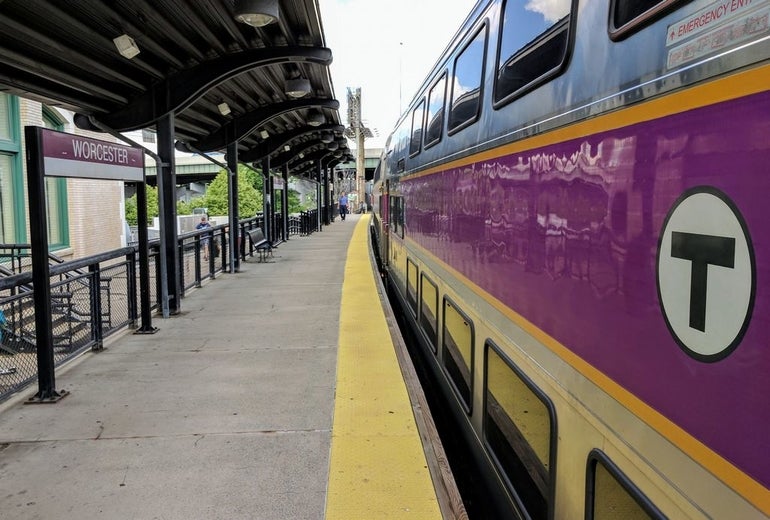The Framingham/Worcester commuter rail line, which often trails the MBTA system average for reliability, is ending 2017 on a high note.
The rail line’s 30-day average as of Wednesday was 94 percent, indicating how many trains arrived at their final stop on time or in less than five minutes later than scheduled.
The MBTA commuter rail average for the past 30 days has been 91 percent.
It wasn’t such a great year for reliability for the Framingham/Worcester line, however, according to data from the MBTA.
On-time service was less than 80 percent in April through June, and again in September and October. The worst performance was in June, when only 69 percent of trains arrived on-time or just thereafter.
A few fixes on the Framingham/Worcester line — the system’s second busiest and third longest — could help explain the improved results in recent months.
Keolis Commuter Services, the operator of the commuter rail system, replaced thousands of rail ties in March, and service was briefly disrupted in September to allow crews to make track improvements in Brighton the T said would help improve reliability through that area.
The Framingham/Worcester line added a new stop, Boston Landing in Brighton, in May. That addition brought a slight change in arrival times at stations along the route.
The MBTA said in May it would not add more stops to the HeartToHub direct route between Worcester and Boston after consideration of whether to do so.
More improvements are on the way in the new year, which will also bring some temporary disruptions to riders.
The Framingham/Worcester line is set to be shut down for 15 weekends starting in June through September so the MBTA can install a federally mandated safety technology.
The $459-million project is designed to prevent train-to-train collisions, over-the-speed-limit derailments, and train travel through track switches left in the incorrect position. Authorities said a fatal train crash in Philadelphia in 2015 would have been avoided if such a system were in place at the time there.
The system slows or stops trains if it finds it necessary to do so. The system will be installed in phases and is expected to be complete by the end of 2020.

